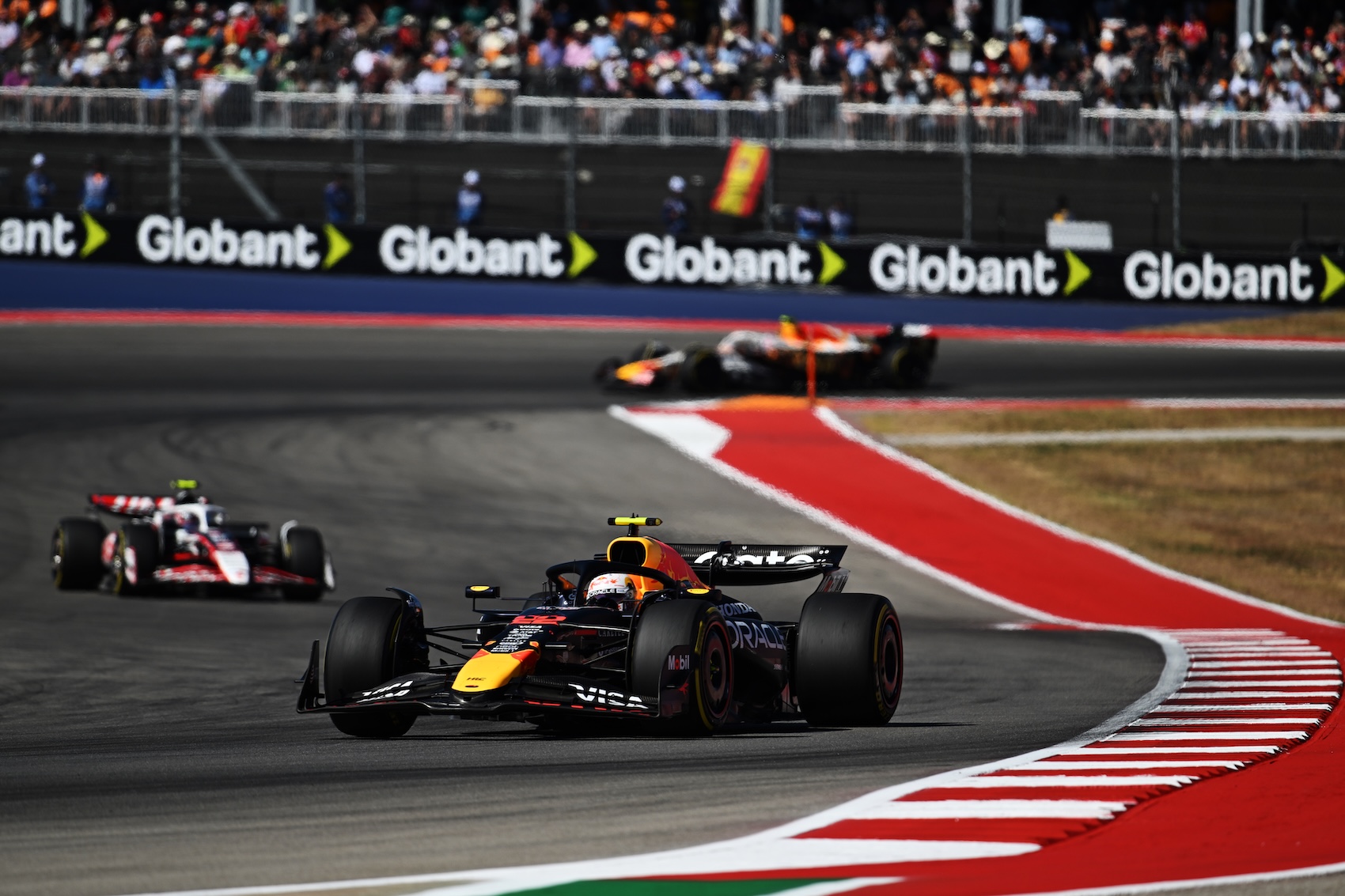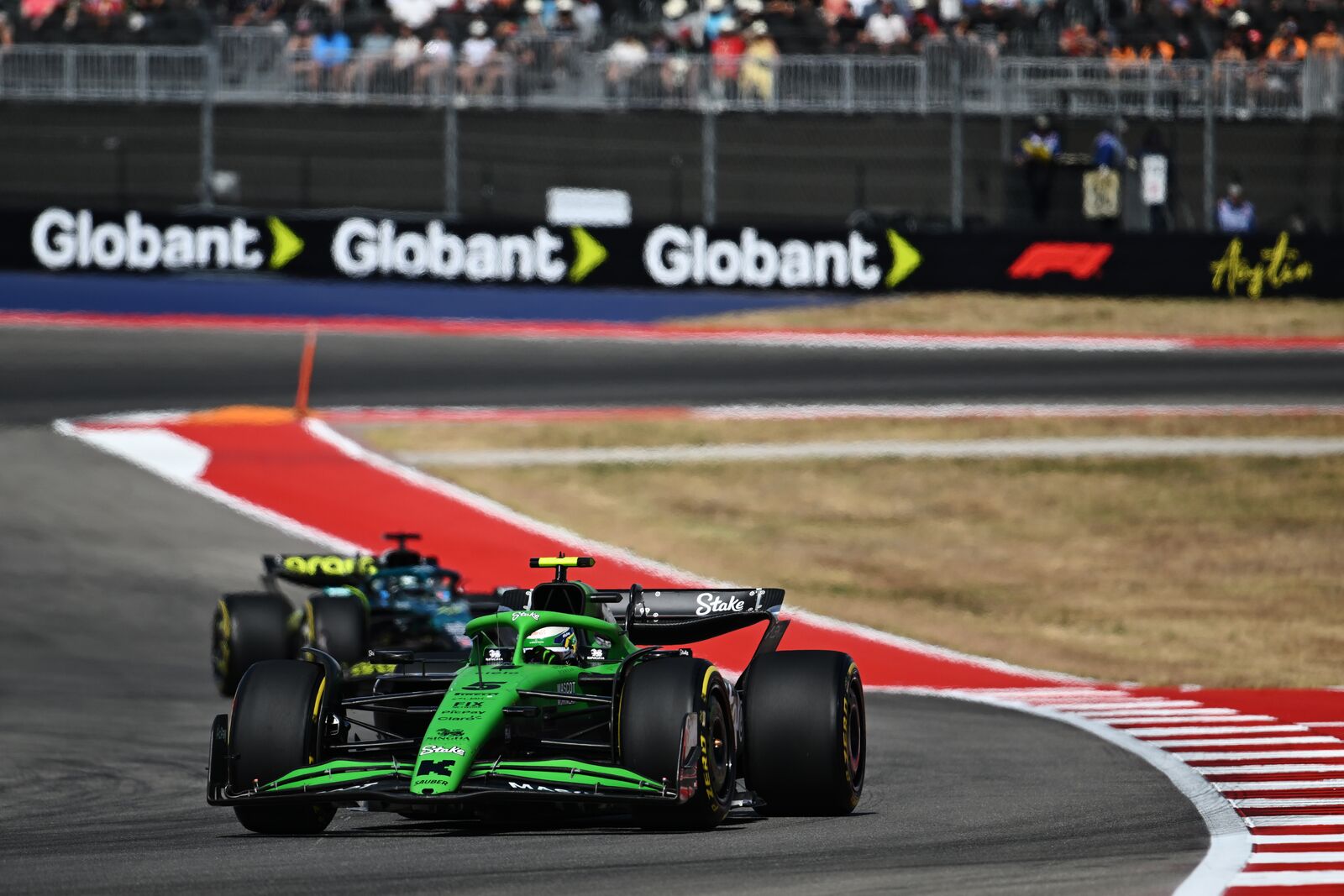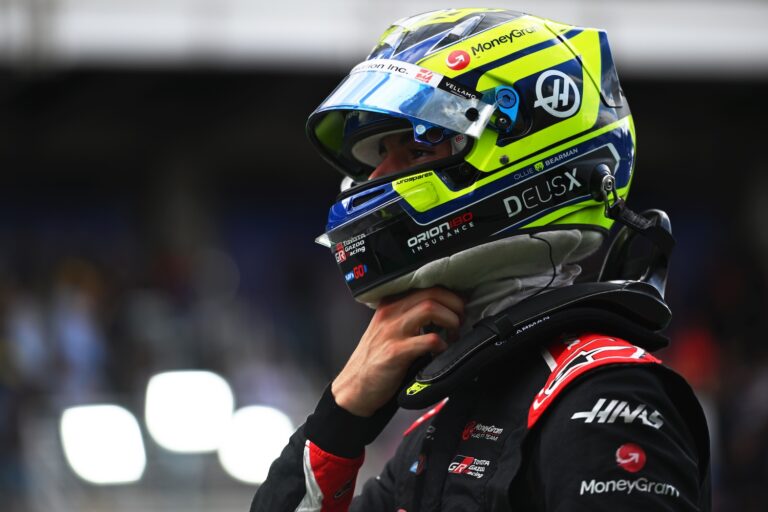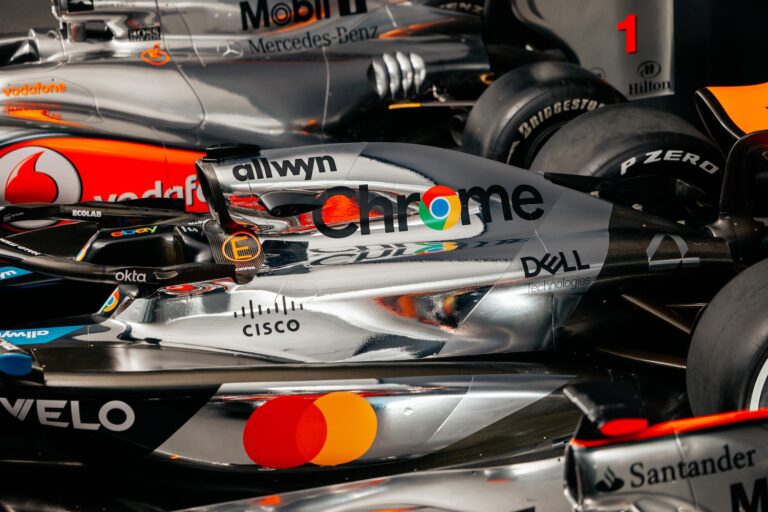Formula 1 has long been the sport where engineering genius and cutting-edge technology collide. Now, with the rise of artificial intelligence, the next revolution is already underway. Globant – one of the sport’s official partners – is driving this transformation. Nicolás Ávila, CEO of Media, Entertainment, Sports & Hospitality AI Studio at Globant, sat down with Paddock Magazine to discuss why F1 is the ultimate stage for AI, how digital innovations are reshaping race strategy and fan experience, and why artificial intelligence may soon be as indispensable to winning races as tyre strategy.
Formula 1 is no stranger to pushing the limits of technology. From aerodynamics to hybrid power units, innovation is the lifeblood of the sport. Yet in recent years, a new wave of transformation has emerged – one powered not by mechanical upgrades, but by artificial intelligence. Behind this evolution stands Globant, a global digital consulting company that has partnered with Formula 1 to deliver cutting-edge AI solutions across performance, fan engagement, and media.
To better understand this bold partnership, Paddock Magazine sat down with Nicolás Ávila, Chief Executive Officer of Globant’s Media, Entertainment, Sports & Hospitality AI Studio. Based in Miami, Ávila brings a wealth of experience from leading operations in North America and working with some of the world’s largest entertainment companies. Our conversation ranged from the strategic reasons behind Globant’s Formula 1 involvement to specific AI innovations like the Team Content Delivery System (TCDS) to a broader vision of where technology can take the sport in the coming decade.
Why Formula 1?
Globant is a company with clients across industries – from cruise lines to streaming giants – so why choose Formula 1 as a flagship global partnership? For Ávila, the answer lies at the crossroads of live experience, performance, and technology.
“A couple of years ago, many people thought sports would never return to live arenas. Reality proved the opposite. When people have the choice, they will always spend money on unique, real experiences,” he says. “Formula 1 offers both: it’s an iconic live event and at the same time a sport obsessed with high performance, reliability, and innovation. That combination made F1 the perfect place for us.”
More than a branding exercise, Globant saw Formula 1 as a laboratory for AI applications that demand precision and speed. “We’re a global company helping organisations change the way they interact with fans, consumers, and employees,” Ávila explains. “F1 gave us an opportunity to show what technology can really do in moments where every second – even every tenth of a second – matters.”
Beyond Sponsorship: The ROI of Innovation
Unlike consumer-facing brands that treat Formula 1 mainly as a lifestyle platform, Globant’s focus is squarely on the technology. Ávila emphasises that return on investment for Globant comes not from hospitality boxes or TV logos, but from testing and developing tools that eventually scale across industries.
READ MORE: Robin Fenwick: F1 is the best sport for commercial sponsorship
“Yes, brand awareness is part of it. But for us, it’s about R&D and innovation,” he says. “We’re not here just to put our name on a car. We’re here to push what’s next, and to create value for F1 teams and fans.”
The Team Content Delivery System: A Game Changer in Real Time
Perhaps the most tangible result of Globant’s work so far is the Team Content Delivery System (TCDS), a platform piloted last year and now in full use during the 2025 season. The system improves the speed and quality of video and data feeds available to teams during race weekends.
“In Formula 1, races are decided by tenths of a second,” Ávila says. “Strategy calls – like whether to pit or not – can make or break a race. Until recently, teams sometimes had delays of up to a minute in their feeds. Imagine trying to make a critical call with information that old.”
By reducing latency from tens of seconds to near real-time, TCDS ensures engineers and strategists can act with sharper information. But it’s not just about speed; usability matters too.
“Performance is one side, experience is the other,” Ávila explains. “We’ve made it easier to customise layouts, compare streams side by side, and get the right information on one screen. That kind of experience drives adoption. Teams use TCDS not just trackside, but also in factories and even during qualifying reviews. It’s becoming central to how analysis is done.”
AI Pods: Subscription-Based Intelligence
Globant recently launched a concept called AI Pods – modular, token-based AI teams that deliver measurable progress rather than billable hours. Asked what an AI Pod could look like in Formula 1, Ávila paints a vivid picture.
“Professional services have always been measured by hours. We wanted to flip that. With AI Pods, you’re subscribing to productivity – tokens of real progress, whether that’s code written, analysis delivered, or insights generated,” he says.
Applied to F1, AI Pods could mean new layers of data interpretation, predictive modelling for race strategies, or even fan-facing innovations rolled out in weeks rather than years. “Think about it this way: every month, you’re guaranteed progress, not just activity. For a sport where innovation cycles are brutally short, that’s a huge advantage.”
Lessons from Other Industries
Ávila’s perspective is shaped by working across streaming, theme parks, cruise lines, and stadiums. He sees parallels between these industries and Formula 1, particularly when technology evolves from a cost centre to a revenue driver.
“In stadiums, we’ve helped raise the percentage of known fans from 30% to over 90%. Once you know your audience, you can deliver personalised offers, sell smarter, and build loyalty,” he says. “F1 is on a similar path. When you know who your fans are, what they want, and how they engage, technology stops being a cost and becomes a growth engine.”
He points to streaming services as another example: “We work with seven of the top ten streamers. In that world, milliseconds of latency make or break engagement. The same applies to a Grand Prix strategy call.”
The Future: AI as Essential as Aerodynamics
When asked whether AI could become as central to Formula 1 as aerodynamics or tyre strategy, Ávila doesn’t hesitate.
“It’s hard to imagine a place where AI won’t play a role. In F1, it will become a must-have,” he says. “Just like tyre strategy meetings or aerodynamic upgrades, AI will be a non-negotiable element of success. If you don’t use it, you won’t win.”
But he also offers a note of caution: adoption will not be linear. “As a society, we tend to overestimate technology in the short term and underestimate it in the long term. Many current AI investments won’t pay off right away. But over time, its impact will be unavoidable, just like e-commerce became unavoidable during COVID.”
A Long-Term Vision for the Sport
Looking ahead, Ávila sees Formula 1 not just as a sport, but as a global innovation testbed. “F1 has always been about finding marginal gains. AI is the next frontier of that mindset,” he says.
So what might fans notice in the near future? “By Abu Dhabi 2025, I’d expect fans to have richer digital experiences on their phones and at the track – things they didn’t have at the start of the season. And for teams, I’d expect pit-wall workflows that feel more predictive, more adaptive, and simply smarter.”
Ultimately, he believes that Formula 1’s willingness to embrace technology will define its future relevance. “Sports are about emotions, about spectacle. But behind the curtain, technology is what makes that possible at scale. For F1, AI isn’t a nice-to-have. It’s the new engine of innovation.”
What did we learn?
In Nicolás Ávila’s view, Formula 1’s future is inseparable from AI – not as a gimmick, but as a core tool of strategy, performance, and fan connection. Through initiatives like TCDS and AI Pods, Globant is positioning itself at the intersection of sport and technology, using the world’s most advanced racing series as both a stage and a laboratory.
Just as aerodynamics redefined the sport in the 1970s and hybrid power units did in the 2010s, artificial intelligence now promises to become Formula 1’s defining competitive frontier. And if Ávila is right, those who fail to embrace it will quickly be left behind.











